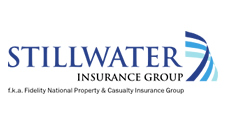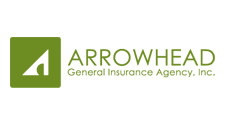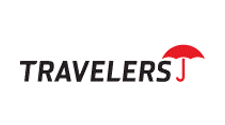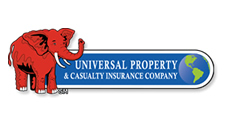12 Things Affecting Your Car Insurance Rates in North Carolina
Understanding Your Coverage Rates and What Factors Can Lower Them
In the state of North Carolina, the law is to have car insurance - if you own a vehicle and use it, of course. And, of course, there are certain things that increase your rates that will help you understand why your rates are what they are. But first, let's go over what auto insurance is and the different kinds of coverage that is applied to your policy.
What is car insurance?
Any type of insurance provides protection to consumers by covering risks and promising to pay for financial losses caused by these risks. Auto insurance can be divided into 2 basic coverage areas: liability and property damage.
Liability Coverage
There are 3 major parts of liability coverage applied to auto insurance policies: liability for bodily injury, liability for property damage, and uninsured/underinsured motorists coverage.
- Bodily injury liability - protects you against the claims, such as medical expenses, lost wages, and pain and suffering, of other people who were injured in an accident of which you were at fault.
- Property damage liability - covers the costs of any damage you cause to others property as a result of an accident in which you are at fault including other vehicles as well as property such as walls, fences, and equipment.
- Uninsured motorists coverage - protects the policy holder from any instances where an accident as occurred at the fault of another party who does not have insurance, doesn't have enough insurance, or they left the scene before a report was filed - commonly known as a hit-and-run.
Property Damage
Property damage coverage may include both collision and comprehensive coverage. These are not required to have by law if you own your vehicle outright (no lien-holders.) However, if the vehicle is being financed, the lending company may require them.
- Collision coverage - pays for damages to your car as the result of an accident with another vehicle, or something else such as a tree.
- Comprehensive coverage - covers damages to your car as a result from other causes, such as severe weather, fire, vandalism, flooding, and theft. It will also cover broken glass, such as windshield damage.
FACTORS AFFECTING YOUR CAR INSURANCE RATES
- Age and GenderStatistics show that teenager and young adult males receive more citations and get into more accidents than their female counterparts. The opposite is generally true for senior drivers. Data shows that older females actually experience more minor accidents as they age.
- Marital Status Married couples are generally more responsible behind the wheel as opposed to singles, as they tend to be more family-oriented. Some newly-married couples may see their premiums drop by as much as 50% since car insurance companies will see them as less of a risk.
- Where You Live You may have heard that most traffic accidents occur close to the home, which makes sense since the area in which you live is typically where you're driving the most. If you live in a highly-populated area, there are more risks since there are more cars on the road, leaving you more vulnerable to experience an accident, or be a victim of theft.If you reside in an upscale neighborhood, and have an accident that results in property damage, your costs will also generally be higher.
- Credit Score & History Just like everything else, credit history affects your rates. The worse-off your credit report, the higher your rates will be.
- Your Job and Your Commute Those who hold jobs that require a lot of driving or traveling, like delivery drivers or sales representatives, are at a higher risk of getting into an accident since they are on the road more. If you have an office job or something else that doesn't require any additional driving besides your normal commute - the person who only has to drive 10 minutes to get to work will be at lower risk than the person who has to drive 45 minutes, an hour, and so on.
- Your Vehicle's Safety Rating Cars that have a lot of safety features, such as airbags, lane-departure warning, back-up camera, blind-spot alerts, adaptive cruise control, etc. will both help prevent an accident and likely leave you with less injuries if an accident did occur. Car insurance companies also generally see SUVs, trucks, and minivans as safer vehicles than sedans, coupes, and compact cars.
- Engine Size The larger and more powerful your engine, the higher your rate will be, since sports cars are made to be driven fast and aggressively, which means a higher risk of a collision.
- Your Vehicle's Age Collision coverage rates for newer cars are higher than for older ones, simply because they're generally worth more. Collision insurance is usually required for new cars also since a majority of new cars are financed and the lending companies will require that you get full coverage during the term of your loan. Older vehicles that are involved in a wreck, most times will incur damages that will cost more than the cost of the vehicle is worth all together, and you will likely just have to get a newer vehicle to replace it.
- Your Vehicle's Rate of Theft Every year, a list of top 10 most popular stolen cars is released. So, if the vehicle you drive is on this list, there's a good chance your rates will increase. According to this article from Forbes, the top 2 stolen vehicles were the Honda Accord and Honda Civic, respectively, and by a landslide.
- Your Personal Driving History Well, this one should be obvious. The more accidents and moving violations on your record, the higher your rates will be. And, if you have a clean driving record, you should be getting the cheapest rates, since you are at a much lower risk.Accidents and violations, however, don't stay on your record forever, so the longer you go without an accident or speeding ticket, the lower your rates will be over time. Unfortunately, a DUI stays on your record for 10 years and your rates will skyrocket afterwards. So, of course, you shouldn't drink and drive. But there is a way to soften the blow of getting a DUI before it happens. Not every insurance provider offers this kind of coverage, but you can ask an agent at NC Coastal Home Insurance about DUI Insurance and the differences it will make if you do make that mistake.
- How Much You Drive This pretty much goes back to what we were talking about with your job commute - But it also includes how often you drive in general. For instance, if you live in North Carolina, but frequently go see your family or old friends up in Virginia on the weekends, you, again, are at more of a risk of getting into an accident.
- Where You Purchase Your Insurance North Carolina drivers have an 85% chance of lowering their current auto insurance rate by shopping with NC Coastal Home Insurance. So, if you would like to see what we can do for you, fill out the form below to get a hassle-free, no-obligation quote, or call to speak with an agent 24/7 at (910)591-1010!







